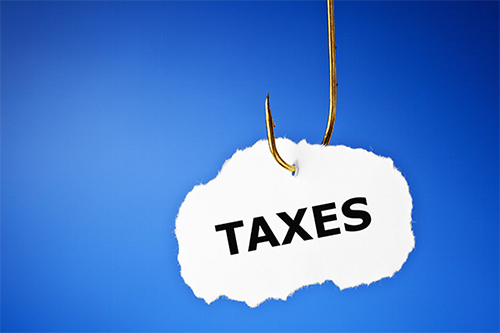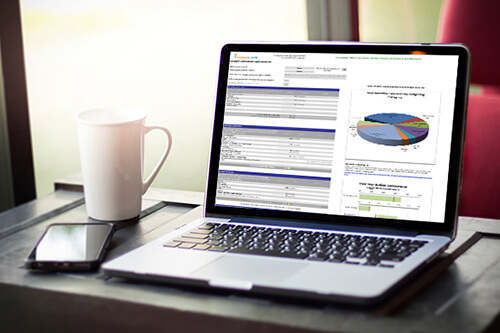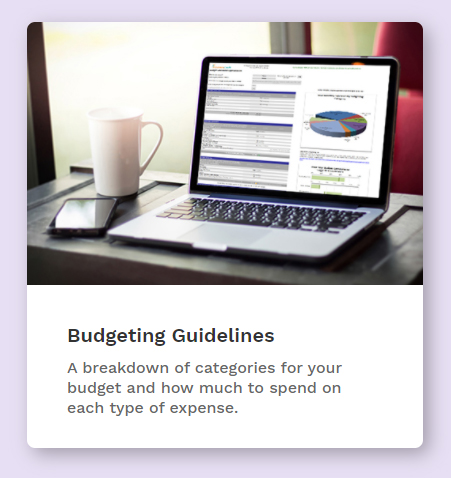File Your Income Taxes: It Benefits Your Budget & Your Bank Account
There is So Much to Miss Out On If You Don’t File on Time
By Julie Jaggernath
Whether you love or loathe tax season, it benefits your budget to file your income taxes on time. If you’ve ever missed the due date, you know it can be a real eye-opener to see how many income-tested initiatives there are – programs and services you miss out on if you haven’t filed your taxes by the deadline. Some of the programs decrease how much you need to pay to receive a certain benefit, while others put cash straight into your bank account to use for various bills. Any delay because you filed late can impact your budget.
Here’s what could be at stake if you file late or not at all:

You Miss Out On a Refund – Most People Get One
One of the biggest reasons people choose not to file their taxes is that they’re afraid they owe the government money and can’t afford another bill. If this is one of your concerns, there’s actually a good chance you’ll get a refund. Two-thirds of people do. And for the 2023 tax filing season (when we do our taxes for 2022), the government made changes to tax credits and deductions. They shifted tax brackets up slightly to account for higher living costs. As a result, many refunds are a little bigger this year.
As of March 13, 2023, Canada Revenue Agency (CRA) reports that of the 3.7 million returns processed since the start of this year’s tax filing season, 66% resulted in a refund. And the average refund was $2,172!
Only 14% of tax returns resulted in a balance owing, which on average was $4,470. If you owe and file on time, even if you can’t pay, you avoid the late filing penalty and interest charges on that amount, on top of what you owe. Twenty percent of returns filed this year so far are nil returns, with no balance owing and no refund due. By filing a nil return these Canadians qualify for any federal and provincial income-tested programs or services in their province of residence.
All of this means that the odds are in your favour that you will get a refund if you file your taxes. And with the high cost of living, any extra cash in your budget goes a long way to making ends meet and not relying on credit cards to get by.
While letting the government use your money for free for a year isn’t ideal, it does mean that you won’t face an income tax bill each April. The lump sum of money most of us will get can be used for anything from paying off debt, to jump starting an emergency savings account, or indulging in a splurge. Take a look at your budget to see where you stand in relation to your goals before you decide how best to use your tax refund.
12 Excuses People Make for Not Filing Their Taxes – Does Yours Stack Up?
Federal Benefits and Credits Put Cash Into Your Account
Your family’s reported income determines which benefits and credits you may be eligible for, both at the federal as well as at the provincial level. There are benefits that relate to age as well as income level.
People with kids are typically familiar with the Canada child benefit (CCB), which you won’t be able to receive if you don’t report your income. For those with lower income, the CCB can amount to hundreds of dollars each month, which can be the difference between struggling to support your family during this time of high inflation, or getting by a little more easily. If you have kids, check out the Child and Family Benefits Calculator to see what benefit you may be entitled to.
For lower income Canadians there’s the Canada workers benefit (CWB) if you’re working, and the Guaranteed Income Supplement (GIS) if you’re a lower income senior. Both of these programs depend on you filing your tax return. If you file late, your benefits could be disrupted until your tax return is processed.
Eligibility for the GST/HST Credit is Automatically Determined When You File
Many people get at least some of the quarterly GST/HST credit. It helps modest income households offset some of the tax they pay throughout the year. By filing your tax return, CRA automatically determines how much of a rebate you’re eligible for.
Provincial & Territorial Benefits and Needs-Based Programs Must Know Your Income
There are provincial and territorial benefits along with the federal benefits and there are income-tested programs and services across the country as well. If you don’t file your taxes, you will be forced to pay the maximum for any service because your eligibility for reduced fees depends on your verified level of income.
For example, at the provincial level in BC, Medical Services Plan (MSP) premium assistance as well as the Fair PharmaCare deductible (which helps with the cost of prescriptions) are determined by reported income. The deductible for Fair PharmaCare is the amount you must pay before your eligible prescriptions are covered for the balance of the year. The Fair PharmaCare program in particular restricts retroactive reimbursements, so it’s important to keep your enrolment current to receive the benefits.
Provincial and territorial programs that are not administered by the federal government require you to consent to CRA sharing your reported income information with the provincial program. It’s not done automatically, and it is usually valid until you revoke your consent or when you miss reporting your income via your tax return.
Subsidized Daycare, Sports and Activities & Student Loan Applications
If your children attend subsidized daycare or participate in activities eligible for subsidies or grants, eligibility is determined by reported household income because these are needs-based programs.
Student loans are another needs-based program and parents’ reported income is often needed on applications for students attending university, college, or technical school in the years right after high school. A student’s own taxes may need to be filed up to date as well.
Assisted Living, Nursing Homes, Disability Credits – Reported Income Vital
For assisted living or nursing home accommodations for seniors or those with a disability, payment is based on affordability, which is again determined by the previous year’s reported income.
Penalties for Filing Late
There are provincial and territorial benefits along with the federal benefits and there are income-tested programs and services across the country as well. If you don’t file your taxes, you will be forced to pay the maximum for any service because your eligibility for reduced fees depends on your verified level of income.
When you earn income, you must file an income tax return, but you may not know what you owe until after you’ve filed. If you owe and file on time, even if you can’t pay, you avoid the late filing penalty and interest charges on that amount. If you can pay part of what you owe, pay what you can afford; some is better than none.
CRA is the most powerful creditor in Canada, so payments on what you owe the government must be prioritized. That said, if you contact them and make reasonable payment arrangements, that will go a long way towards peace of mind and dealing with that and other debts. If you need help, one of our credit counsellors would be happy to review your situation with you, answer your questions, and provide you with guidance around how to proceed.
COVID-19 Tax Considerations
There are a number of tax considerations to keep in mind when it comes to the various pandemic benefits. You may have received income from one of the COVID-19 benefit programs, you may need to repay a portion of the money you received, or you might want to arrange a payment plan if you owe a lot and can’t afford to repay all of what you owe right away. Visit CRA’s COVID-19 information page to learn more.
File Your Income Tax Return – Here’s How to Get Started
If you’re not sure where to start with filing your income tax return, CRA has a comprehensive FAQ page to help you get started. Read down the list of topics and click on those that apply to you. Then gather your paperwork and electronic slips so that you’ve got everything handy. If you have a myCRA account, CRA might have uploaded some of your information to your account at the time copies of the slips were submitted to CRA. That means that the government will know if you owe whether you file or not – so file your income taxes so that you know, too. If you need more help, ask a family member, hire a tax professional, or take advantage of CRA approved software to file online. There’s a lot riding on keeping your taxes filed up to date and CRA has extra staff available at this time of year to answer questions. So rather than panic, keep calm and file on. The deadline is April 30th, but since that’s a Sunday in 2023, your return will still be considered on time if submitted on May 1st.





If you file taxes late by a few years and were entitled to GST/HST Credits and OTB. Will you get them for all the years you were late or do you lose out? Also, on the late filed taxes, it seems they did not refund the CPP and EI overpayments. Is this normal if you file late?
Great questions! We aren’t, however, tax experts and would hate to give you the wrong information. The best thing to do would be to give CRA a quick call and get the right answer the first time. While CRA sometimes gets a bad rap for being slow on the phones, if you can call mid-week and during the day, the wait on hold typically isn’t too bad. Get their contact info here: https://www.canada.ca/en/revenue-agency/corporate/contact-information/telephone-numbers.html If you don’t want to call CRA, contact an accounting professional who deals with personal income tax returns. They should be able to answer your questions too.